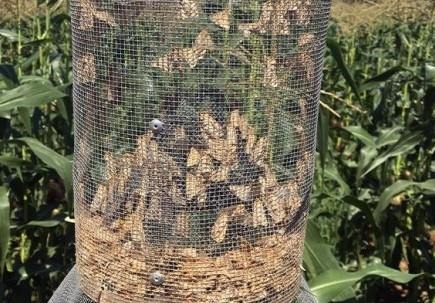By Shelby Fleischer

Corn earworm adults in trap.
Dr. Kelly Hamby, an associate professor and Extension specialist with the Department of Entomology at the University of Maryland, is leading a team of researchers who have developed a survey to prioritize research and extension efforts for improving corn earworm management in sweet corn throughout the Northeast. Your participation in this survey would be appreciated and the results will be used to develop a grant proposal to pursue federal funding to address these needs.
The survey should only take 15-20 minutes or less to complete. It is open to sweet corn producers, crop consultants, Extension personnel, and others who make sweet corn pest management decisions or provide management recommendations.
Source : psu.edu